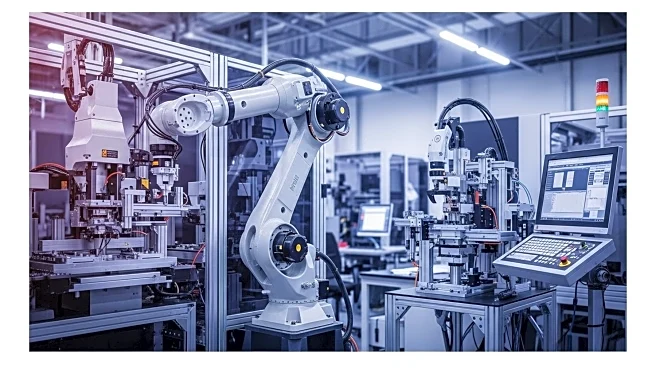What's Happening?
R&B Switchgear Group, a Manchester-based manufacturer, has partnered with three local colleges to address the skills gap in the engineering and manufacturing industry. The company welcomed its first cohort of six Engineering and Manufacturing T Level students in 2023, followed by another six the next year. T Levels are two-year technical qualifications designed for 16-19-year-olds, including a 45-day industry placement. These placements allow students to gain practical experience and test their skills in real-world settings. R&B Switchgear has offered full-time apprenticeships to five students, strengthening its recruitment pipeline and addressing the challenge of an aging workforce.
Why It's Important?
The initiative by R&B Switchgear Group is significant as it addresses the longstanding skills gap in the UK manufacturing sector, which costs the economy £6 billion annually in lost output. By investing in T Level students, the company is not only securing its future workforce but also contributing to the broader industry need for skilled professionals. This approach provides a sustainable solution to the talent shortage, ensuring that the manufacturing sector can continue to grow and innovate. The success of this program could serve as a model for other companies facing similar challenges.
What's Next?
R&B Switchgear plans to continue offering industry placements, with the aim of expanding its talent pool and maintaining a robust recruitment pipeline. The company is likely to see increased interest from other firms in adopting similar strategies, potentially leading to wider industry collaboration with educational institutions. As more students complete their T Levels, the manufacturing sector may experience a gradual reduction in the skills gap, enhancing productivity and innovation.
Beyond the Headlines
The partnership between R&B Switchgear and local colleges highlights the importance of collaboration between industry and education in solving workforce challenges. This initiative not only benefits the company but also provides students with valuable career opportunities, fostering a new generation of skilled workers. The success of such programs could influence public policy, encouraging further investment in technical education and industry placements.









